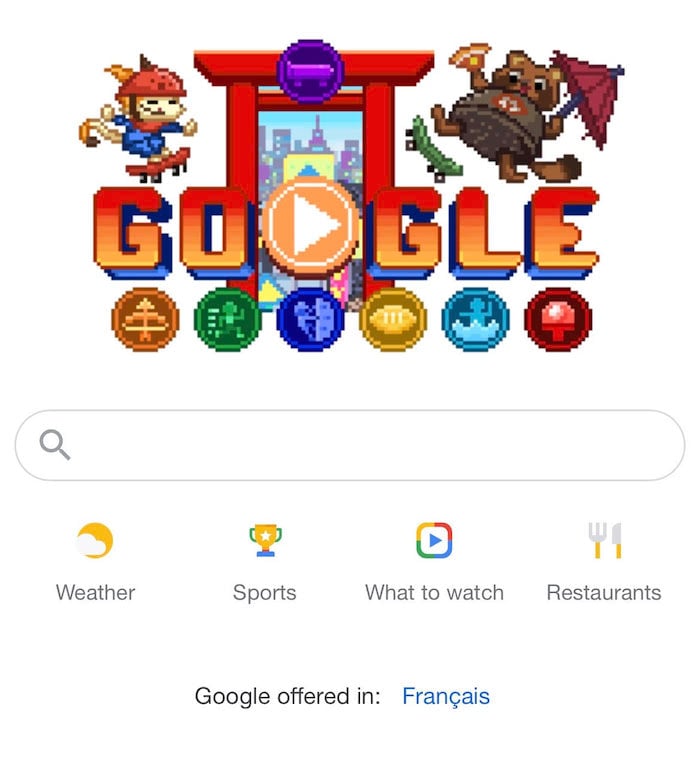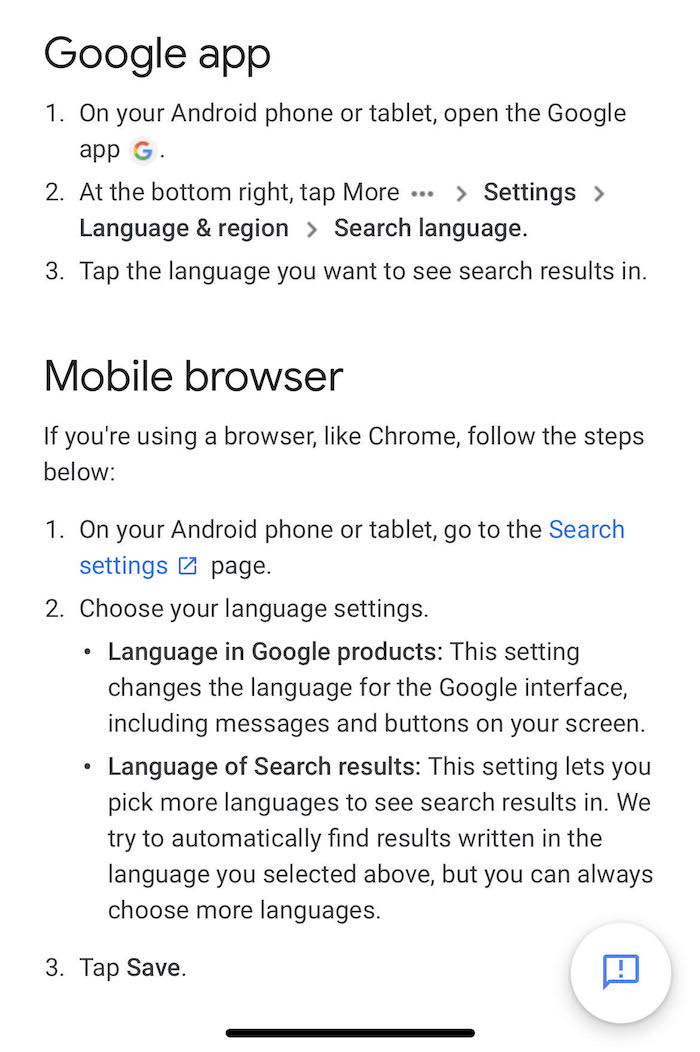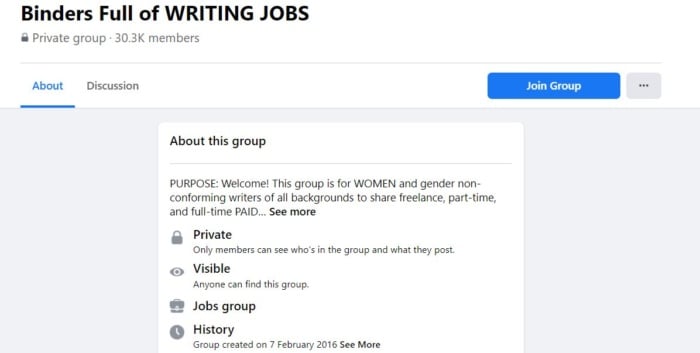Originally published in 2016It popped up on my phone yesterday…I haven’t spoken to KC in almost 8 years.We met when I was in my early twenties.I was working for the health club company and KC was brought in as the new sales manager. He was the new hired gun.He grew up in the industry selling […]
Author: Evelyn Kozak
Salient (YC W23) Is Hiring
Article URL: https://www.ycombinator.com/companies/salient/jobs/aFIMuS5-founding-engineer
Comments URL: https://news.ycombinator.com/item?id=39483125
Points: 0
# Comments: 0
Meticulous (YC S21) is hiring to eliminate UI testing
Joon (YC W22) is hiring a founder growth hacker
Article URL: https://www.ycombinator.com/companies/joon/jobs/sKzkrxO-founding-growth-manager
Comments URL: https://news.ycombinator.com/item?id=38475864
Points: 0
# Comments: 0
Hospitals across the U.S. turning to foreign nurses as healthcare workers are fired over vaccine mandates
Short staffed hospitals across the country are turning to international nurses to fill staff shortages as thousands of healthcare workers across the country are being cut loose for not submitting to a coronavirus vaccine.
New comment by hvhallmann2 in "Ask HN: Who is hiring? (November 2021)"
AE Studio | LA Office | Multiple Roles | Full-Time ae.studio We are a development, data science and design studio that works closely with founders and executives to create custom software and machine learning solutions.
We are hiring top notch professionals passionate about software development, data science, design or product management to work with our amazing team creating human agency increasing software!
Full descriptions: https://ae.studio/join-us
The post New comment by hvhallmann2 in "Ask HN: Who is hiring? (November 2021)" appeared first on Get Funding For Your Business And Ventures.
The post New comment by hvhallmann2 in "Ask HN: Who is hiring? (November 2021)" appeared first on Buy It At A Bargain – Deals And Reviews.
Get the Best VA Small Business Loan for Your Business
Yes, You Can Get VA Small Business Loan—Here’s How
Veteran-owned businesses tend to be small, and of course they require working capital. But where can veterans get a VA small business loan?
Programs for Veterans to Get a VA Small Business Loan and More
Veterans can get a VA business loan through entities like:
- The US government (SBA)
- Private websites
- Online lenders
Plus, there are programs not specifically for small business loans for veterans which they may qualify for as well.
Get a VA Small Business Loan via an SBA Veterans Advantage Guaranteed Loan
The SBA provides fee relief on small-dollar loans. This helps to reduce barriers for veteran-owned small business, so they can access capital and create jobs. The SBA uses a credit scoring model to help reduce underwriting costs and processing time for a VA SBA loan.
For loans of $150,000 or less, the upfront guaranty fee is zero. The upfront guaranty fee is also zero for SBA Express Loans. For loans not through SBA Express, the upfront guaranty fee for loans to veteran-owned small businesses for $150,001—$500,000 (inclusive) is 50% less than the upfront guaranty fee for non-veteran owned small businesses. For loans for over 12 months, the fee is 1.5% of the guaranteed part. And for loans for 12 months or less, the fee is 0.125% of the guaranteed part.
Details
For loans of $500,001—$5,000,000 (inclusive), upfront guaranty fees for 7(a) loans made to veteran-owned small businesses depend on the loan amount and the loan’s. For loans with a term of over 12 months, guaranty fees are:
- Loans of $500,001—$700,000: 3% of the guaranteed part
- Loans of $700,001—$5,000,000: 3.5% of the guaranteed part up to $1 M
- Plus 3.75% of the guaranteed part over $1,000,000
For loans for 12 months or less, the guaranty fee is 0.25% of the guaranteed part.
Qualifying for SBA Veterans Advantage
A small business must be at least 51% owned and controlled by a person(s) in these groups:
- Honorably discharged veterans
- Active Duty Military service members eligible for the military’s Transition Assistance Program (TAP)
- Active Reservists and/or active National Guard Members; or
- Current spouse of any veteran, Active Duty service member, Reservist, National Guard member, or the widowed spouse of a service member who died while in service or due to a service-connected disability
FYI, if you’re looking for a Patriot Express loan, the SBA doesn’t offer those anymore.
Get a VA Small Business Loan from the Military Reservist Economic Injury Disaster Loan Program (MREIDL)
The Office of Veterans Business Development (OVBD) administers this program. Eligible small businesses can get loans up to $2 million. Pay a fixed 4% interest rate with a maximum repayment term of 30 years. The purpose of these loans is to cover operating costs a business cannot meet due to the loss of an essential employee called to active duty in the Reserves or National Guard. It comes directly from government benefits.
Or get a VA Small Business Loan from the Service-Disabled Veteran-Owned Small Business Concern Program
Government financing can also come in the form of preferences for contracting work. The federal government’s goal is to award at least 3% of all federal contracting dollars to service-disabled veteran-owned small businesses each year. To qualify, businesses must be at least 51% owned and controlled by one or more service-disabled veterans. And one or more service-disabled veterans must manage day-to-day operations and make long-term decisions. Eligible veterans must have a service-connected disability. These are some of the best business loans for disabled veterans.
SBA Microloans Can Be a Good Alternative to a VA Small Business Loan (If You Do Not Need Too Much)
Available to both veterans and non-veterans, the SBA provides microloans to small businesses that cannot typically qualify for other lending options. SBA microloans currently go up to $50,000.
Microloans often have higher interest rates of 8%—13%. Often, a microloan requires collateral and heavy paperwork, including a business plan, various tax returns and financial projections for the business. Average SBA microloan size is about $13,000.
Supplement a VA Small Business Loan with a Grant from The StreetShares Foundation
This is a 501(c)(3) nonprofit organization. Its programs provide access to capital opportunities, educational content, mentors, coaching, and networking events. Its programs serve military community entrepreneurs nationwide. Their VA small business grant program, the Veteran Small Business Award, provides financial support to help veterans start or grow small businesses.
The StreetShares Veteran Small Business Award
Apply via video pitch. Tell the Foundation about the business and its social impact on the military community. Convey, in the written application or video pitch, your strategy for resilience in response to rapid market change prompted by the pandemic crisis.
They also evaluate your nonprofit or business entity on its positive social, community, educational, military-transition, veterans’ employment, health & wellness, or veterans’ mental health/spiritual impact, on the American military and veteran community. This is in addition to or in conjunction with business or nonprofit functions. Awards run $4,000—$15,000.
The StreetShares Foundation Military Entrepreneur Challenge
Qualified applicants submit their pitch on video. 8—15 finalists are chosen, then voted on, at the Foundation website. Awards are as follows:
- $15,000 for first place
- $4,000 for second place
- $2,500 for third place
Qualifying for The StreetShares Foundation Military Entrepreneur Challenge
Applicant must be a veteran, reserve or transitioning active duty member of the US Armed Forces. Or they can be a spouse of a military member or the child or immediately family member of a Military Member who died on active duty. Applicants must own at least 51% of the business entity described in the application. Grant funding is for veterans and military spouses who are low-income or otherwise lack financial means and have a goal to start or grow an early-stage business or nonprofit.
So FYI, the USAA small business loan program with Street Shares has ended.
Get Work Vessels for Vets and Use a VA Small Business Loan for Other Expenses
This charity offers grants to veteran-owned small businesses. Their purpose is to help returning vets transition from military service to the civilian workforce. The program provides new or used equipment (adapted to accommodate injuries if needed) to returning veterans starting a non-farming business. So this equipment has been everything from laptop computers to commercial fishing boats.
More Programs
They also have a program for vets starting farms or ranches, and a program for nonprofits serving veterans. Still, they give preference to post-9/11 returning combat veterans. To qualify, you must provide a business plan.
Average vessel value runs about $5,000—$6,000. But the charity defines ‘vessel’ as anything a vet would need to do business, like tools or farm fencing. Charity Navigator gives them a failing score, but that may be more due to a lack of information versus anything nefarious.
Hivers and Strivers
Hivers and Strivers is an Angel Investment Group. They focus on early-stage investments to support start-up companies founded and run by graduates of US Military Academies. Also, they typically invest $250,000—$1 M in a single funding round and provide active involvement.
Hivers and Strivers involvement includes serving as board members and advisors and providing counsel and offering expertise. Venture Capital for Veterans will soon take over funding. Because they are affiliated with Hivers and Strivers.
Veteran Ventures Capital
This is an investment group. Any veteran-owned businesses can apply for funding. They also offer a full range of consulting services to ensure business success. As a Service-Disabled Veteran Owned Small Business, they also have ties to government contracting to aid veteran entrepreneurs in expanding their opportunities to work with federal agencies.
Through their government solutions branch, they offer help with budgeting and professional staffing, along with product procurement, and getting government contracts.
Veterans Business Fund
VBF is a not-for profit organization, established to aid veterans by providing supplemental capital required to satisfy the equity requirements for a small business loan. The VBF provides capital in the form of a non-interest bearing loan with very favorable repayment terms. Currently, the VBF is not taking applications, while they go through a fundraising round.
More Funding Choices
So there’s more out there than veteran business loans and grants. Veterans and non-veterans alike may qualify for:
- Merchant cash advances (if their business has incoming revenues)
- Crowdfunding is an option for all, but conventional businesses tend to not do so well
- Veteran and non-veteran business owners can also sell equity in their business to angel investors for funding
Yet more options include collateral-based funding, business credit, and our credit line hybrid. Our credit line hybrid is a form of unsecured funding—good for both veterans and non-veterans. Get business funding without having to supply bank statements or credit stubs.
Getting a VA Small Business Loan: Takeaways
VA loans and other financing are out there. And you can get grants or even venture capital investment in your business. There are also nonprofits which give money to veteran-owned businesses. But never forget about the SBA and their programs, and programs not specific to veterans, like our credit line hybrid.
The post Get the Best VA Small Business Loan for Your Business appeared first on Credit Suite.
How to Use Google Translate for Content Ideas
Content, content, content.
At times, it seems it’s all marketers think about. Even so, you may eventually find yourself in a content desert, desperately searching for a well of fresh content ideas.
You’ve exhausted every Google search, every whiteboard brainstorm.
However, there’s one strategy you may not have thought of.
Have you explored industry blogs in other languages with Google Translate? If not, it’s time to go international.
In this post, we break down the why and how of using Google Translate to generate content ideas.

4 Ways to Use Google Translate for Content Ideas
Google translate is an incredible resource, so it’s no wonder that in addition to having over 100 languages, we can look to the translating superpower for content ideas.
Below, we unpack the four best ways to generate new content ideas.
1. Check Out Top Blogs Around the World
Looking to broaden your content horizons? Start by broadening your search horizons. If you’ve exhausted industry content ideas in your native language, look beyond your linguistic borders to other voices in the industry.
By enabling Google Translate to translate websites, you can explore far beyond any language barriers that may exist and find troves of content to inspire you to create your own, similar asset in your language.
To begin searching for content in other languages, you must first select a different language through Chrome settings, either through the app or through your browser.

Now begin searching within your new language settings. When you encounter a page you want to be translated, simply:
- Open Google Chrome
- Navigate to the page you would like translated
- Click “Translate” at the top of page
Et voilà! You have a fully translated page that you can borrow inspiration from for your next blog post, white paper, infographic, or graphic.
2. Explore Social Media Brand Accounts for Different Countries
Don’t stop your inspiration search at mere Googling: head to social accounts to find brands from different companies.
Let’s take Twitter, for example. You can change the language settings for your app through the browser views by visiting Settings.
After you’ve changed to the language you’d like to search, explore what top brands in the space are sharing and saying. For example, we changed our language to French and searched #digitalmarketing to see what was trending conversationally.
From there, we dug into French digital marketing corporations, exploring their social presence, websites, and blogs, all in search of content inspiration.
While we uncovered a number of topics and enviable content, we were particularly taken with this social post that shared stock images to use with a current, global event.

3. Find Globally Trending Topics
If we stay in the Twittersphere, trending topics tend to be in your country, if not in your locale. To enable all globally trending topics from your browser, simply:
- Select #Explore from the left-hand column of your homepage
- From there, click the gear icon in the top right of the screen
- The location window will open, displaying a box ticked that reads “Show content in this location”
- Untick the box, displaying more options
- Select the Explore option button to find all the locations where Twitter is available
- Select your desired locations to see the trending topics
By exploring topics outside of your own worldview, you can find new areas of discussion and new niches in need of filling. These hashtags can allow you to tailor your content to the larger conversation.
4. Dig Into Your Industry Internationally
While we’ve covered exploring by hashtag, you can also discover inspiring content through finding the top influencers or companies in your specific sphere.
A lot of aggregation sites provide a ranking for industry leaders in other countries. When we searched for the best digital marketing agencies in Germany, we pared down a list of 20 to a list of 10.
From there, we navigated to their websites and explored their blogs.
By exploring what other digital marketers are creating globally, we can tap into trends larger than those before us, borrow content ideas and find inspiration across borders.
5 Tips for Using Google Translate to Generate Content Topics
While finding content that relates to your field is a feat in itself, you want to ensure the content you’ve found is truly relevant. Below, we break down five tips to keep in mind as you explore international content waters.
1. Be Aware of Cultural/Linguistic Nuances
While looking for inspiration and ideas across continental divides is all well and good, if you use Google Translate, be aware of cultural and linguistic nuances that can change the meaning and interpretation of text.
For example, colloquialisms hardly ever translate across linguistic divides. In these cases, if you’re borrowing heavily from existing text, you must be sure to adjust the language to reflect terminology that makes sense for your reader. Otherwise, your work will go to waste completely.
2. Be Cognizant of Being Offensive
Wading into a larger conversation always poses a risk for the unindoctrinated. If you choose to use Google Translate to enter an ongoing discussion about an industry topic, be sure you’ve educated yourself on the nuances and realities of said topic. Regardless of intent, there is always the possibility your entrance into the conversation may not be as productive as you had hoped.
In terms of borrowing from existing content, read the translation with an eye toward how it will be perceived by your future audience, reworking and removing anything that may not come across as intended.
3. Discover Content in Industry-Adjacent Niches
Perhaps you’ve gone through all of the search exercises noted above and still came up empty-handed. To look even deeper into your topic, explore industry-adjacent niches that can help drive even more content ideas.
Let’s stay with our digital marketing example. Rather than casting a net that wide, we can delve into email marketing, and from email marketing into email metrics, and from email metrics into strongest email calls to action (CTA).
By moving beyond the overarching umbrella of your industry, you can find more granular content that speaks to your market, providing you inspiration and guidance along the way.
4. Explore Content All Around the World
With 109 languages and counting, there’s no limit to content you can explore with Google Translate. As you get accustomed to delving into different languages, go beyond your usual searches and seek out different points of view from different individuals.
With each search, you can find more and more content inspiration and involve yourself in the global, ongoing conversation about the largest trends, topics, and issues impacting your field.
5. Keep SEO in Mind
As a marketer, you’re well aware of the importance of search engine optimization (SEO) on your content, regardless of format. When you use Google Translate to translate a content piece, you will have to reoptimize the piece for SEO to ensure that it meets your standards and drives searchability.
Be sure to include your respective keywords and adjust content as needed to reflect your goals throughout any piece that goes through Google Translate.
Frequently Asked Questions About Google Translate
Is translated content considered duplicate content?
In short, no. Translated content is not duplicate content. With different words and phrases, nuances and colloquialisms, translated content is entirely different from its origin. To learn more about this, watch this excerpt from Google’s John Mueller.
How do I get Google to automatically translate a page?
To get Google translate to translate for you, simply follow these three steps:
1. Open Google Chrome
2. Navigate to the page you would like translated
3. Click “Translate” at the top of page
How can Google Translate help me find content ideas?
By harnessing Google’s translation powers, you can find inspiring content from all over the world to recreate for your own brand. What’s more, you can join a larger conversation that is ongoing globally, widening your audience reach even further and establishing you as an international thought leader.
Is Google Translate accurate?
For everyday use, Google Translate is pretty accurate. For the specific use of searching for content inspiration, Google Translate is very accurate. With that said, be sure to read for linguistic nuance and appropriateness before sharing or replicating in total.
{
“@context”: “https://schema.org”,
“@type”: “FAQPage”,
“mainEntity”: [
{
“@type”: “Question”,
“name”: “Is translated content considered duplicate content?”,
“acceptedAnswer”: {
“@type”: “Answer”,
“text”: “In short, no. Translated content is not duplicate content. With different words and phrases, nuances and colloquialisms, translated content is entirely different from its origin. To learn more about this, watch this excerpt from Google’s John Mueller.”
}
}
, {
“@type”: “Question”,
“name”: “How do I get Google to automatically translate a page?”,
“acceptedAnswer”: {
“@type”: “Answer”,
“text”: “To get Google translate to translate for you, simply follow these three steps:
1. Open Google Chrome
2. Navigate to the page you would like translated
3. Click “Translate” at the top of page”
}
}
, {
“@type”: “Question”,
“name”: “How can Google Translate help me find content ideas?”,
“acceptedAnswer”: {
“@type”: “Answer”,
“text”: “By harnessing Google’s translation powers, you can find inspiring content from all over the world to recreate for your own brand. What’s more, you can join a larger conversation that is ongoing globally, widening your audience reach even further and establishing you as an international thought leader.”
}
}
, {
“@type”: “Question”,
“name”: “Is Google Translate accurate?”,
“acceptedAnswer”: {
“@type”: “Answer”,
“text”: “For everyday use, Google Translate is pretty accurate. For the specific use of searching for content inspiration, Google Translate is very accurate. With that said, be sure to read for linguistic nuance and appropriateness before sharing or replicating in total.”
}
}
]
}
Google Translate Conclusion
As the demand for quality content continues to rise in every industry, it is vital marketers identify new sources to inspire and replicate content that hasn’t been duplicated by every brand in your industry.
By looking beyond the traditional bounds of your content-sphere, you can tap into conversations and ideas that can inspire similar content creation, while simultaneously inviting you into a global conversation about your industry.
As you explore more and more languages, be sure to keep nuance and perception in mind. Don’t forget to continuously optimize any borrowed content for SEO so your version of the content can rank as high as possible.
What’s the best place you’ve found content inspiration?
Should I Outsource My Blog? 5 Questions to Help You Decide
Running a blog is a lot of work.
You have to continually feed it new content, keep up with WordPress updates, maintain your hosting account, moderate comments, respond to readers…dozens, maybe even hundreds, of little tasks. On top of all that, there’s promoting and monetizing your blog, which is even more work.
It’s hard for anyone to manage, and the larger your blog grows, the worse the situation becomes. That’s why it’s good to prepare in advance for blogging eventualities you might face.
If you’re feeling overwhelmed, one of the questions you should ask yourself is “should I outsource my blog?”
If so, there’s a few ways to do this.
You could split up the work with guest posts, staff bloggers, or outsource your blog completely. The method you select will depend on a couple of things.
1. Your Relationship With Your Readers
When you blog, you need to build trust, bonds, and relationships with your readers. They grow to know you and like you, and they can’t wait to read your next post.
There’s a downfall to this though: your readership may want content only from you. They may be turned off if you step back and start outsourcing your blog posts.
What will happen to your blog if you outsource your blogging? It depends.
If a blogger like Dooce or Naomi Dunford decided to outsource their blog, their readers would probably revolt. Their personalities are such a large part of the blog that it would be hard to get their readers to accept anyone else.

If your blog is already big and established, and you have thousands of loyal readers, it could be tough to outsource your blog. There’s a good chance you’ll lose some readers if you hire staff or start adding guest posters.
Fans will read their work politely, but it’s really you they want. It will take time, a good plan, and weathering rumbles from readers until they accept it.
No one likes change, but eventually, things will settle down. They’ll hang in there, especially if you’re still publishing quality content, are active with posting now and again, and if you hire a blogger whose style and tone match your brand personality. Make sure the blogger also provides similar-quality advice, info, or entertainment as you’ve been giving.
Of course, all of that only matters if you have an audience. What if you’re just getting started?
The truth is it’s a lot easier. You can build your blog around posting awesome content, rather than one particular personality. It won’t matter where the content comes from; as long as it’s awesome, your readers will be happy. That leaves the door open for you to hire other writers.
2. What Type of Content Writer Do You Need?
You can’t hire just anyone to write for your blog. You need to find a writer who fits with your business brand, its mission, and the level of knowledge your blog provides. Of course, this writer also has to be able to fit in with your goals and get results.
Here are some questions to think about before bringing someone on:
- Does the writer have the knowledge for the job?
- What’s the person’s writing style and personality like?
- Does that style fit with your business and brand?
- How long have they been writing online content?
- Do they have proven results?
- How experienced and skilled are they?
- Can they help you achieve your goals?
(Note that I didn’t mention, “How much do they cost?” We’ll get to that in a bit.)
First, though, recognize that outsourcing writing comes down to basically trusting someone with your business reputation. You’re not just shoving off a task; you’re giving someone permission to represent you and your business.
This means the person you hired needs to be able to maintain your credibility (or enhance it), please your readers and get them talking, and generally make your life better and easier by freeing up your time and becoming an asset to your blog.
Tips for Finding Outsource Writers
- Connect with freelance writers using tools like UpWork or Fiverr
- Join social media groups dedicated to writers, like Facebook’s Binders (this group is only for women but there are similar ones for writers of all genders)
- If subject matter expertise is a requirement for you, search for influencers in your field; look at the speakers and participants at conferences in your field; target members of professional associations; check out trade journals
- Search for writers with particular subject matter experience on LinkedIn

3. How Will You Compensate Them?
Good writers don’t work for free, but they don’t always want just money, either.
Some ask for marketing exposure. Others want a link to their blog, republication rights, or a barter arrangement.

Before hiring someone, decide what you bring to the table. Can you send them traffic? Build their credibility? Improve their search engine rankings? Recommend their products and services to your readers?
You need to have something to offer in exchange for a writer’s work (and you’ll need more than $10 and a link), so figure out what you’re prepared to give in return for what the blogger brings to you.
In general, the more you give, the more you get.
Pay $10 for a blog post without offering anything else in exchange, and you’ll probably get a bad headline, sloppy grammar, and ordinary ideas, none of which would do much to build your blog.
At the other end of the spectrum, some bloggers will do everything for you, including editing, polishing, getting photos, and promoting your post to generate traffic. You’ll pay a lot more, anywhere from a few hundred to a few thousand dollars per post, but you’ll be getting a lot more for the money, too.
4. Should You Hire a Ghostwriter?
Ghostwriters write on your behalf and you present the work as your own. The President uses ghostwriters for his speeches; nothing wrong with that.

It’s controversial, however, especially when it comes to blogging. Some feel it’s dishonest.
Others feel that there’s nothing wrong with hiring someone to help write and share your knowledge with your audience. There’s no rule that says you must slave over writing posts if you absolutely can’t stand it, don’t have the time, or just don’t want to.
Here’s another argument: if your writing skills aren’t up to snuff, you might be potentially damaging your credibility and sales.
People with average writing skills often hire ghostwriters who turn their notes, audio files, thoughts, and outlines into great posts. You’re using the same knowledge; someone else is just doing the writing. Often, it’s the knowledge that your readers care about, not who puts it into words.
Ghostwriting may be a great option for you if you don’t like to spend time writing, can’t write well, aren’t seeing the results you want, or want time to develop other areas of your business.
5. What If It Doesn’t Work Out?
Every time you make a change in your business, there’s always the risk it might not have been the best decision.
Let’s say you hire a writer, work with a few guest posters, or decide to hire a ghostwriter. After a couple of months, you realize that you’re not getting the results you wanted; maybe traffic is down or your audience has shifted or sales have dropped.
Don’t freak out. It happens. All you need to do is adjust. Unless you’ve completely trashed your business reputation, you can always change your content and blogging strategy.
You can go back to blogging yourself, hire a new writer with a different personality, get a ghostwriter to write more posts for you; whatever works.
Conclusion
As we’ve demonstrated in this article, if you’re wondering “should I outsource my blog,” the answer is: it depends.
No matter what you decide about outsourcing your blogging, you’re never stuck and committed forever. A blog is just a marketing tool that you can play with and test, adapt to your needs, and measure for effectiveness as you go along, just like any other form of marketing.
If you’re nervous to start or shift your blogging strategy, reach out to us for a consultation. We are here to help you find success with your blog and content marketing in general.
The post Should I Outsource My Blog? 5 Questions to Help You Decide appeared first on Neil Patel.
Hong Kong's Freedom Fighters
Jimmy Lai is charged under a security law for criticizing China.
The post Hong Kong's Freedom Fighters appeared first on ROI Credit Builders.





